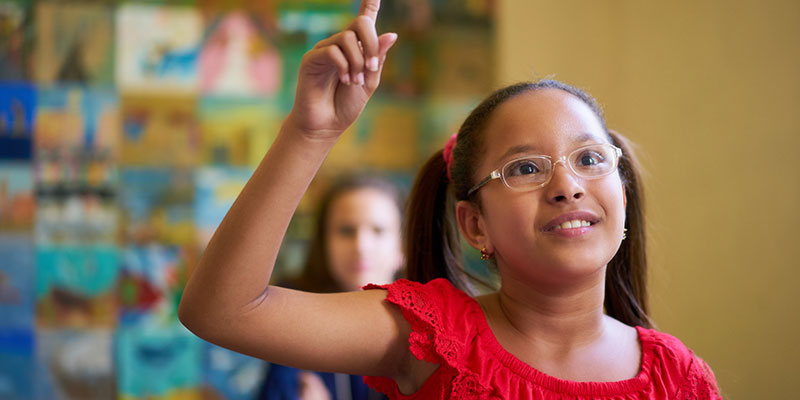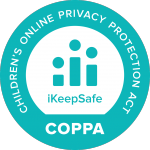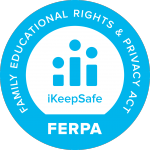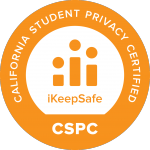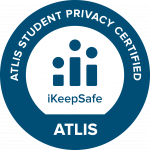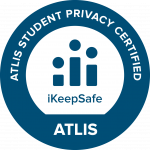Black History Month is typically a time to look back at pioneer inventors of the past and people who have spent their lives advancing science despite racism and oppression. However, there’s still a lot of work to do. Underserved communities and education gaps still hold many black youth back from discovering their potential in STEAM fields.
With that in mind, we’ve compiled a list of people, organizations, and media outlets dedicated to helping today’s underrepresented youth enter STEAM fields. It’s important to reflect on history, but we need to continue to take steps to improve our society, and positively build upon that history.
Loretta Cheeks, Ph.D. and Strong TIES
Loretta Cheeks, Ph.D. has made waves in Phoenix, Arizona by combining the worlds of hip-hop and STEAM to build interest in programming for black and Latino students. Cheeks is the founder of Strong TIES, which provides culturally-relevant coding camps to students in the area.
One of the camps she put together, Turn Up for STEAM, is for teens aged 13-18 in which the the science of sound is explored including how engineering can be used to create hip-hop tracks. By focusing on topics of interest to kids, Cheeks strengthens whole minds and shows how classroom concepts connect with the real world.
Hip Hop Hacks
Hip Hop Hacks (HHH) is another organization that uses hip-hop to connect with underserved youth. The first HHH hackathon was hosted in Spring 2016 in conjunction with Monthly Music Hackathon at Spotify Headquarters. The program continues in New York with plans to expand to other states. There are now over 20 corporate sponsors and more than 1,000 students in attendance.
The goal is to connect both STEAM professionals and leaders in the music industry with today’s youth. These hackathons give students a chance to find role models and mentors in the industry and learn how their classes can further their career goals.
Black Girls Dive Foundation
Through sisterhood, scholarship, outreach, and education, the Black Girls Dive Foundation creates opportunities for young women of color to participate in aquatic-based recreational and STEM activities.
Research from the University of Memphis found that 70 percent of African Americans do not know how to swim. Furthermore, drowning rates of black children ages 5-14 is three times higher than white children. This makes swimming a public health issue. BGD helps girls learn to scuba dive and become comfortable in the water, and also to pursue aquatic-based STEM careers with the same confidence as their white peers.
Black Girls Do Science
Every spring, the University of Iowa College of Engineering hosts “Black Girls Do Science,” a daylong camp for underrepresented girls in 4th-8th grades in the area who are considering careers in various STEAM fields.
Last year, more than 70 girls learned that Vaseline and Kool Aid can be used to make lip gloss, completed introductory computer coding projects, and made ice cream with liquid nitrogen. Considering black women only make up two percent of American scientists and engineers, these activities by the University of Iowa can engage future STEAM professionals by connecting science to other concepts they love.
The i.am.angel Foundation
Artist Will.i.am launched the i.am.angel Foundation in 2009 to provide opportunities to students and give them the ability to attend college in STEAM fields. Through i.am scholarship awards and i.am college track plans, the foundation helps underserved communities like Boyle Heights in east Los Angeles, where Will.i.am grew up.
In a statement for the foundation, Will.i.am said that he wants to turn Boyle Heights from an industrial desert to a hub that attracts businesses because of the talent of the people. If he can hone the STEAM skills of underserved youth in his hometown and others, then he can lead entire communities into a healthy future.
John Urschel
John Urschel is proof that you don’t have to choose between your love of math and sports—any STEAM field for that matter. Urschel was a 300-pound defensive lineman for the Baltimore Ravens who retired in 2017 at 26. He is currently an MIT Mathematics doctoral candidate who has nine published or accepted research papers.
Most people marvel at his enthusiasm for math and how much he enjoys talking about different theories with his colleagues. As much fun as he might have had in the NFL, he says he’s at his happiest at MIT. The idea that there’s life after sports, or that you can love STEAM and sports at the same time, makes Urschel a role model for students across America.
The Arthur M. Blank Family Foundation
Anyone who has watched the Atlanta Falcons play has seen owner Arthur Blank cheering from the sidelines in a crisp. The Arthur M. Blank Family Foundation debuted the Pipeline Project in 2015 to help low-income students in metro Atlanta develop an interest in STEAM education. Since then, it has reached more than 86,000 students and provided more than $1.6 million in grants in three counties.
The Blank Family Foundation works to fight racial education inequality. Only 57 percent of black students graduate from Atlanta Public Schools, compared to 84 percent of their white peers. Similarly, 80 percent of all black children in Atlanta live in poverty, compared to six percent of white children. Blank uses STEAM outreach and policy to narrow this gap.
Marvel’s STEAM Variants
Another opportunity for black youth to connect with STEAM heroes in pop culture is through Marvel comic books. Along with promoting diversity through a black Spider-Man and a Pakistani American Ms. Marvel, the series redesigned some of its popular characters in 2016 to show a wider representation of people in STEAM fields.
Some of these reimagined Marvel heroes include Moon Girl related to science and drawn by Joyce Chin, Gwenpool for math developed by Will Sliney, and Spider-Man for technology by Pasqual Ferry. They’re essential reading for any comic book fan or STEM-inclined student.
Flocabulary
We mentioned Flocabulary previously when reviewing popular channels to connect kids to STEAM, but it’s worth mentioning again, especially because it’s easy to share with kids across America to help them learn about a variety of subjects.
Flocabulary uses creative cartoons with hip-hop songs to teach kids about different concepts. One video might take a deep dive into multiplication tables while another provides an overview of the scientific method. These videos come with activities and quizzes to make them more interactive. Many teachers say they enjoy the cohesive nature of Flocabulary, and really love hearing their students sing the songs during their free time.
Youth Exploring Science
Youth Exploring Science helps students in St. Louis say YES to STEAM careers. The organization hosts science labs and programs on Saturdays throughout the year to teach kids about astronomy, chemistry, and entrepreneurship, among many other topics. They work with more than 250 students throughout their high school careers to advance their STEAM interests.
YES has more than 50 community partners that contribute their expertise to help St. Louis youth learn about science and engineering. They provide activities and networking to help students in their classes and careers.
100 Black Men of Greater Washington, DC
The goal of 100 Black Men of Greater Washington, DC is to improve the quality of life for African American youth in Washington, DC. In particular, their STEM the 100 Way program works to bridge the racial tech divide by providing learning opportunities that engage students in STEAM activities.
The organization uses its connections in the community to work with businesses to help mentor students or host events. It also recruits community volunteers to help at the STEAM events and make a difference in the lives of area youth.
The National Society of Black Engineers SEEK Program
The NSBE started the Summer Engineering Experience for Kids to increase the math and science aptitude of African American students and further their interest in pursuing STEAM fields. SEEK works with young students to close the racial gap at a young age, and the NSBE works to keep that gap closed throughout their education. This makes it easier for students to enter STEAM fields in college and compete in underrepresented fields.
SEEK started in 2007 in Washington, DC and has expanded to more than 37 cities nationwide. The organization has helped more than 17,000 students over the past decade and continues to grow. Its goal is to help produce 10,000 black bachelor’s degree recipients annually by 2025.
Detroit Area Pre-College Engineering Program (DAPCEP)
DAPCEP, the Detroit Area Pre-College Engineering Program, has spent the past 40 years working with underrepresented youth, public schools, and local universities to help close the STEAM skills gap.
More than 60 percent of students who participate in DAPCEP programs say they want to enter a STEM field and 95 percent say they will graduate from high school and attend college. Students can earn scholarships (some exceeding $20,000) from local Michigan businesses to further their education and prepare for the workforce. Through creative activities and community involvement, the volunteers at DAPCEP make a difference.
Diversity in STEAM
Diversity in STEAM is a magazine that highlights minority professionals in the STEAM community. The publishers behind the name believe diversity is essential in all companies for them to grow and excel in the modern economy.
The magazine is worth following for its STEAM news, job listings, networking opportunities and Best Of lists.
Blacks in Technology
Blacks in Technology is another organization that promotes diversity in STEM fields. Not only does it work to provide resources and training to African American tech professionals, it is also a platform that highlights the work of others.
By celebrating the success of those in tech fields now, black tech professionals and future STEM leaders can see what’s possible and how to succeed despite the current lack of diversity in many tech companies.
#BlackScienceMatters
#BlackScienceMatters is a series of eight films produced by the College of Media at University of Illinois under the guidance of professor Charles “Stretch” Ledford. Through the films, students reflect on what it’s like attending a university where their races are underrepresented, and the underlying racism that comes with it.
These short films range from empowering (the first African American woman to earn a Ph.D. in electrical and computer engineering) to heartbreaking (a black STEAM student hearing she would be better at African American studies than biology). Ledford helps his students drill down a national conversation into a local discussion, showing how racism occurs in classrooms just down the hall.


